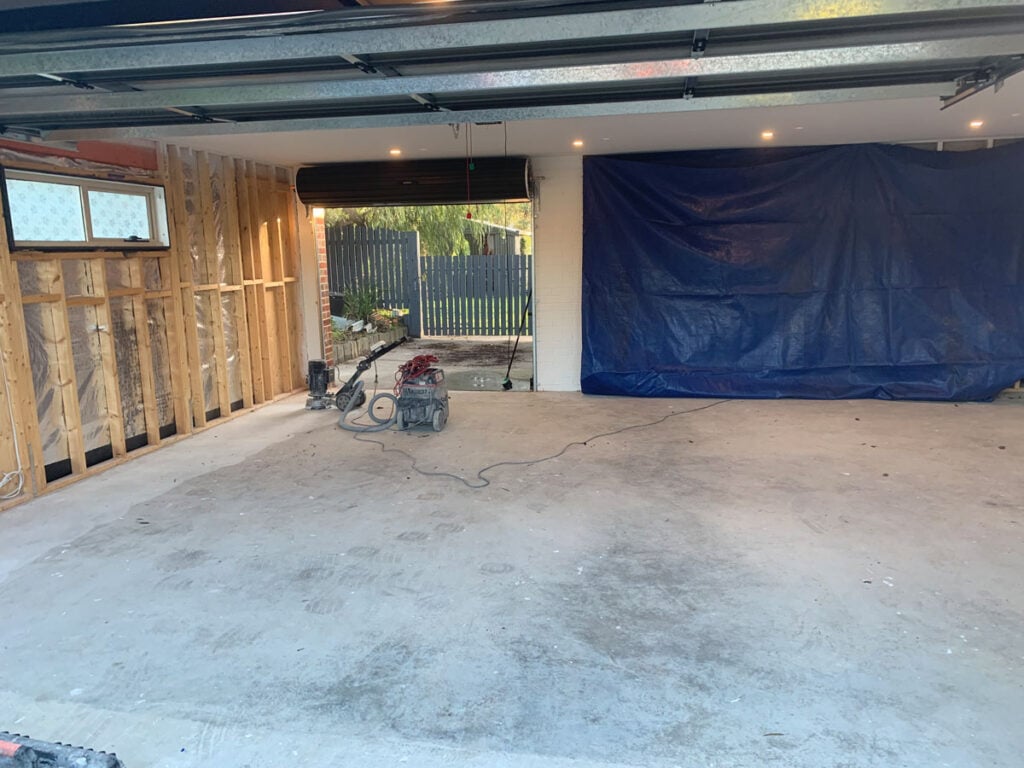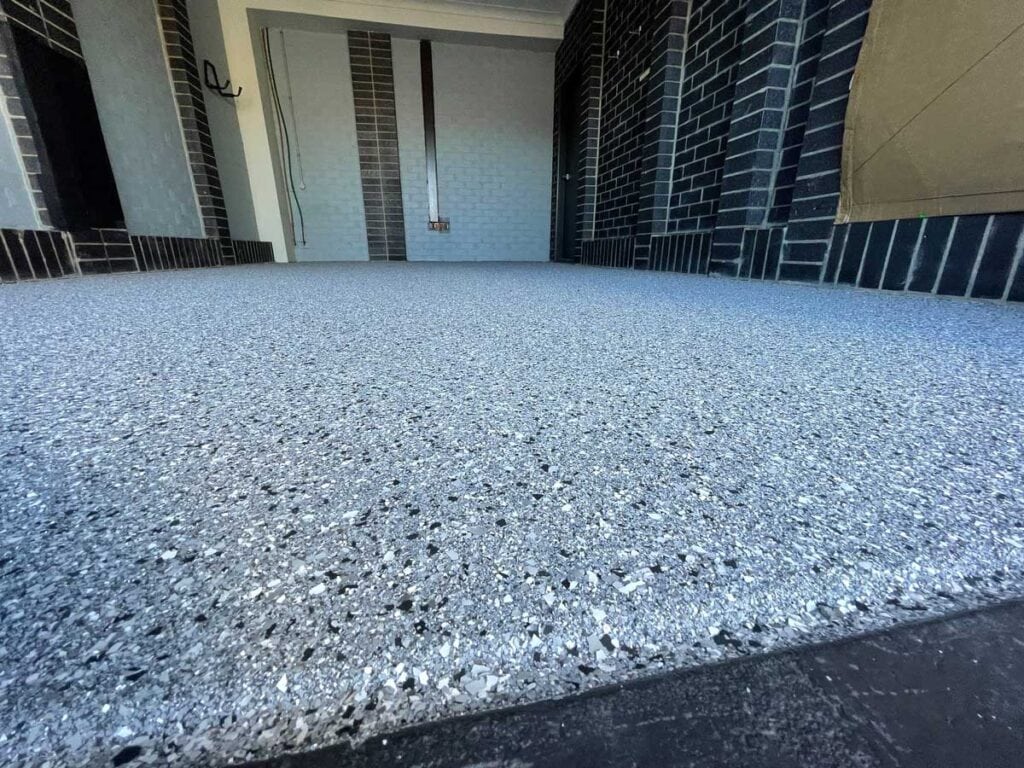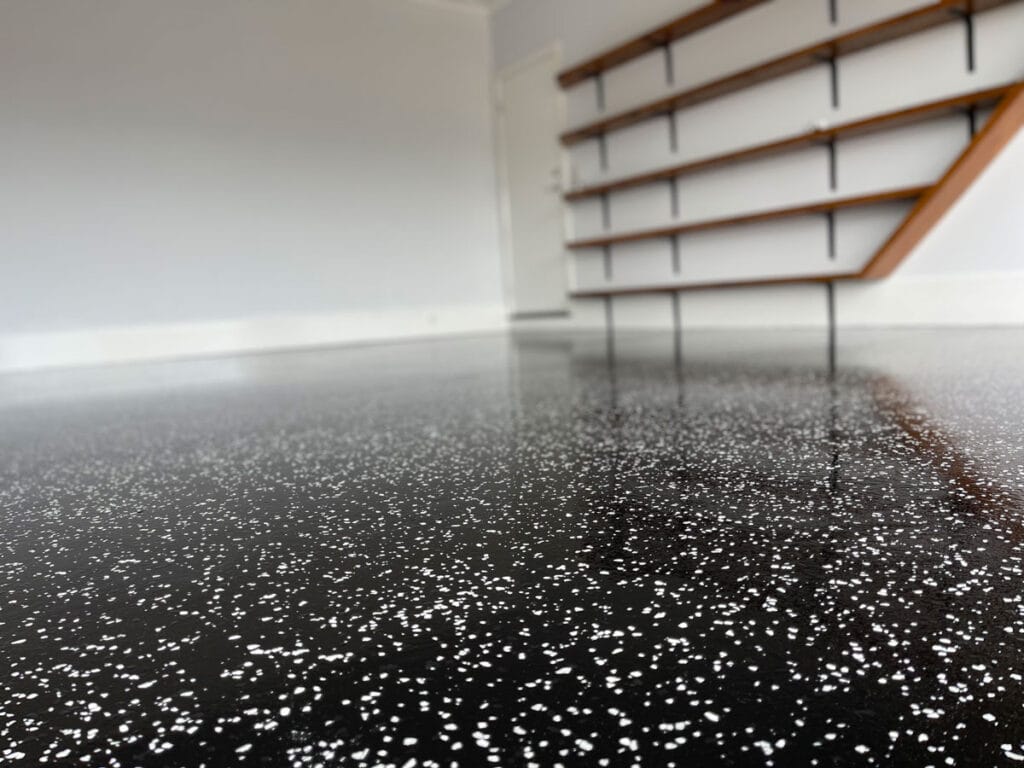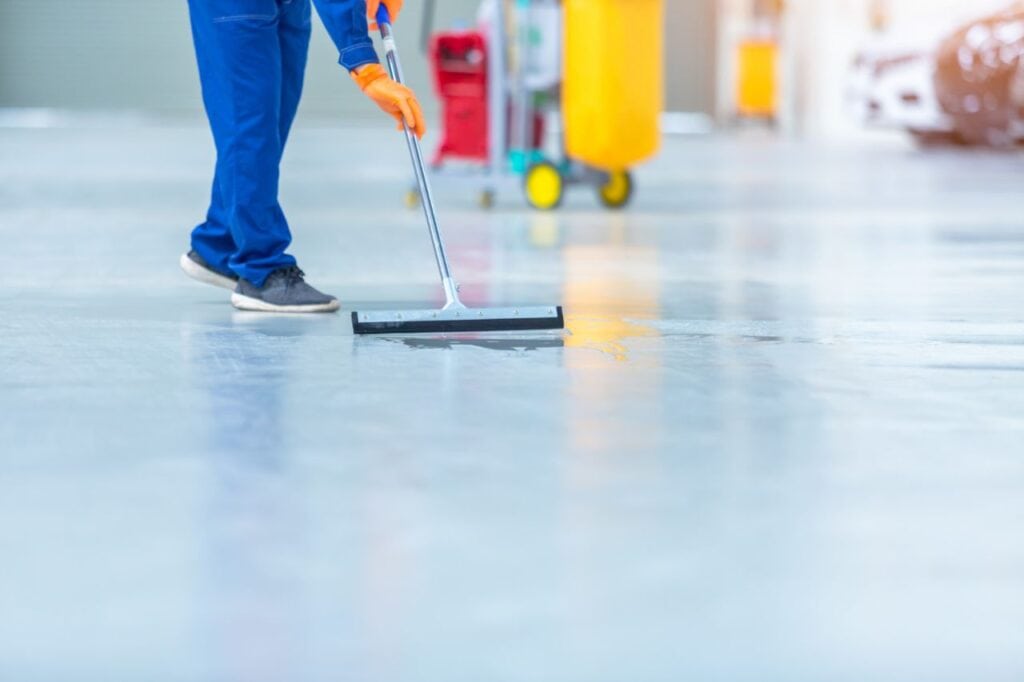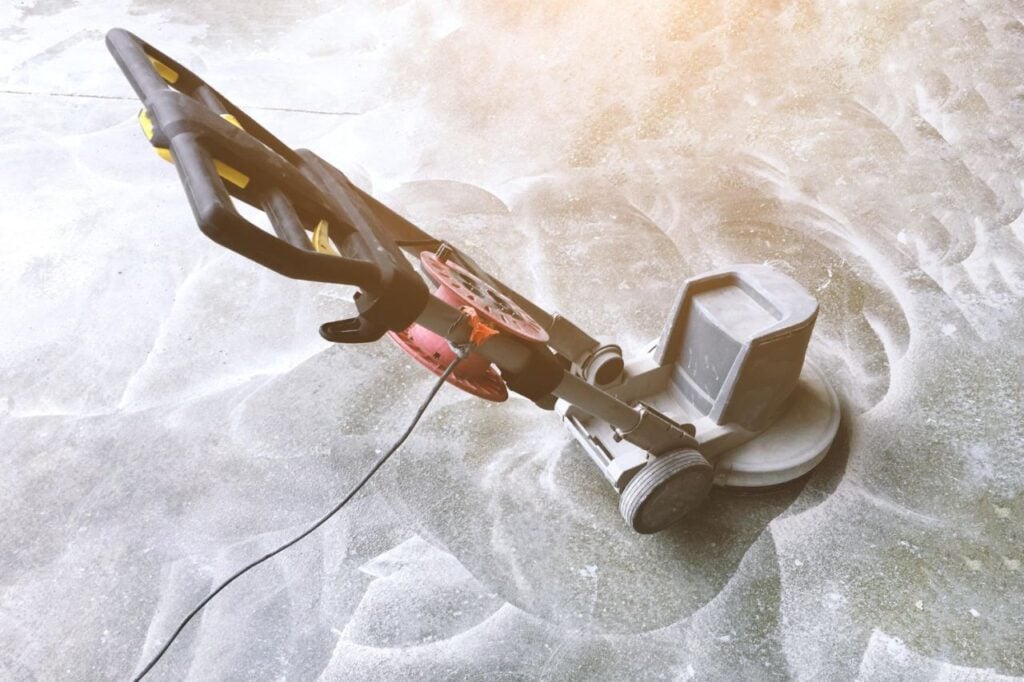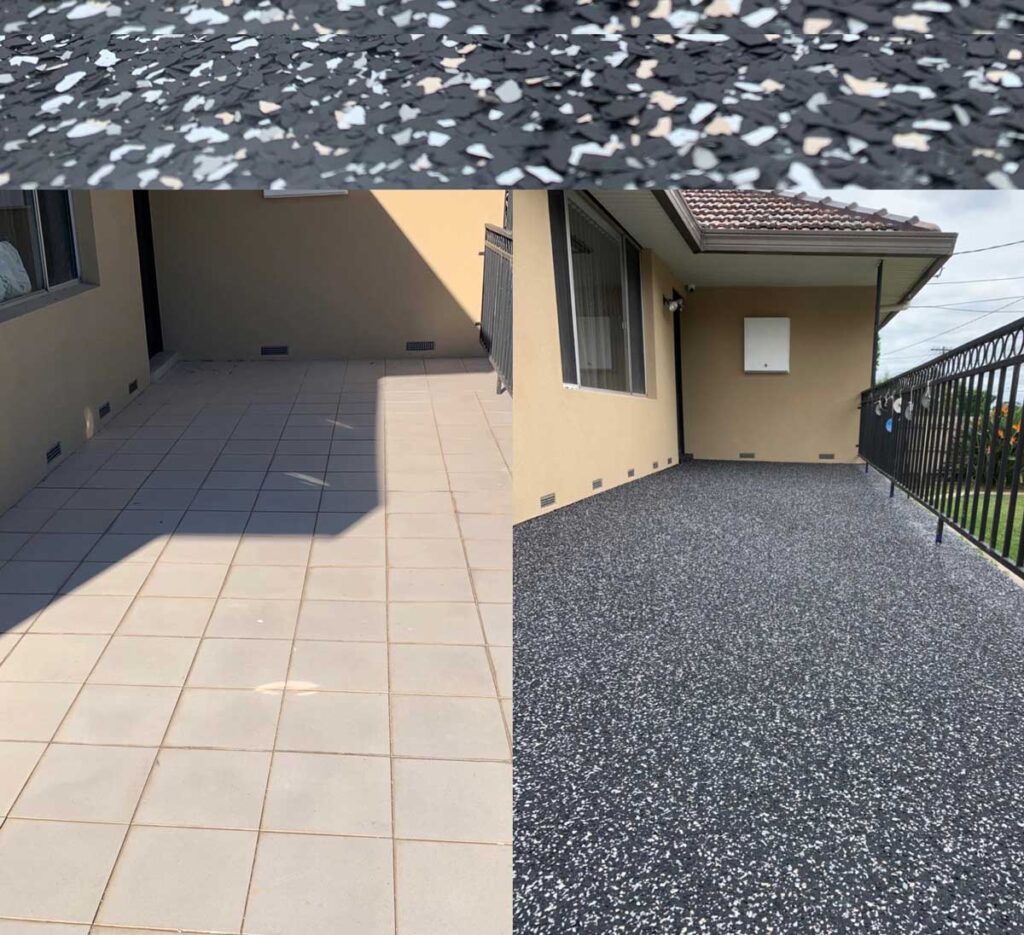Epoxy flooring is an excellent choice for anyone looking to construct a long-lasting ground surface that is exceptionally resistant to the effects of foot traffic. In spite of the fact that it was at one time utilized solely in industrial and business settings, it is now regularly discovered in workshops and residential properties.
In the following paragraphs, we are going to discuss the cost of flooring in Melbourne, as well as the elements that contribute to this cost. Customers are provided with a price per square meter that takes into account both the cost of installation and the price of the material, which makes things somewhat simpler to comprehend overall.
Is this floor worth it?
It is an excellent method for applying a finish that gives an old or new surface layer the appearance of having been professionally done without spending a fortune. In spite of the fact that it is commonly associated with use in garages and industrial settings, it can be constructed in a number of different ways to make it appropriate for a variety of home settings.
It is common sense to apply epoxy to a surface that already consists of concrete if there is already one there. Epoxy as a finish is another option that can prove to be a good choice. Epoxy is one of the most versatile products available on the market, and it may be used to make flooring that is resistant to slipping. In addition, upkeep and repairs are not nearly as important as some of the other available choices.
Factors impacting the price of epoxy in Melbourne
Epoxy flooring in Melbourne has a price that is determined by a number of different elements. In order to receive a more accurate quotation, you will need to get in touch with a local service provider. However, the following are the primary aspects that will have an effect on the total cost:
Preparation work
If your concrete has not been properly prepared, then you will incur an additional expense for concrete grinding services. This is an absolutely important step.
This price is higher than what an epoxy finish would set you back. Even if you don't require concrete grinding, you may still need to perform a variety of preparation work, such as finding a solution to the problem of humidity and vapor transmission.
Total surface area
It should come as no surprise that the price will increase proportionately with the surface area. On the other hand, larger areas might qualify for a price reduction, which would make the whole cost more manageable. For instance, you may be charged $60 for the first one hundred square meters, $45 for the next one hundred square meters, and $30 for each additional square meter thereafter.
Design
Customers looking for flooring that is both aesthetically beautiful and functional can choose from a wide variety of design alternatives. The cost of this will vary according to the level of complexity that you require it to have. When compared to flooring with a normal uniform design, designer flooring will usually cost you an additional $10–15 per square foot.
Number of coatings
You might require a surface that is a little bit thicker, which will be more expensive. Your service provider will be able to provide guidance regarding the thickness that is most suited. The price that you pay will also be affected by factors such as your area and the service provider that you select.
The best part is that this kind of flooring may be used for over three decades and only requires minimum upkeep after that. In comparison to other possibilities, they are very inexpensive, and you have a great deal of leeway in selecting the type of flooring that will be installed in your home.
FAQs On How Much Does Epoxy Floor Cost
Are our epoxy floors affordable?
Epoxy flooring is not only long-lasting but also attractive and inexpensive. Epoxy flooring is an ideal option for a wide variety of applications since it provides a number of benefits, including a bright and beautiful appearance, simple maintenance, resistance to stains and scratches, as well as immunity to heat, water, chemical treatments, and germs.
Which is more expensive, epoxy or tiles?
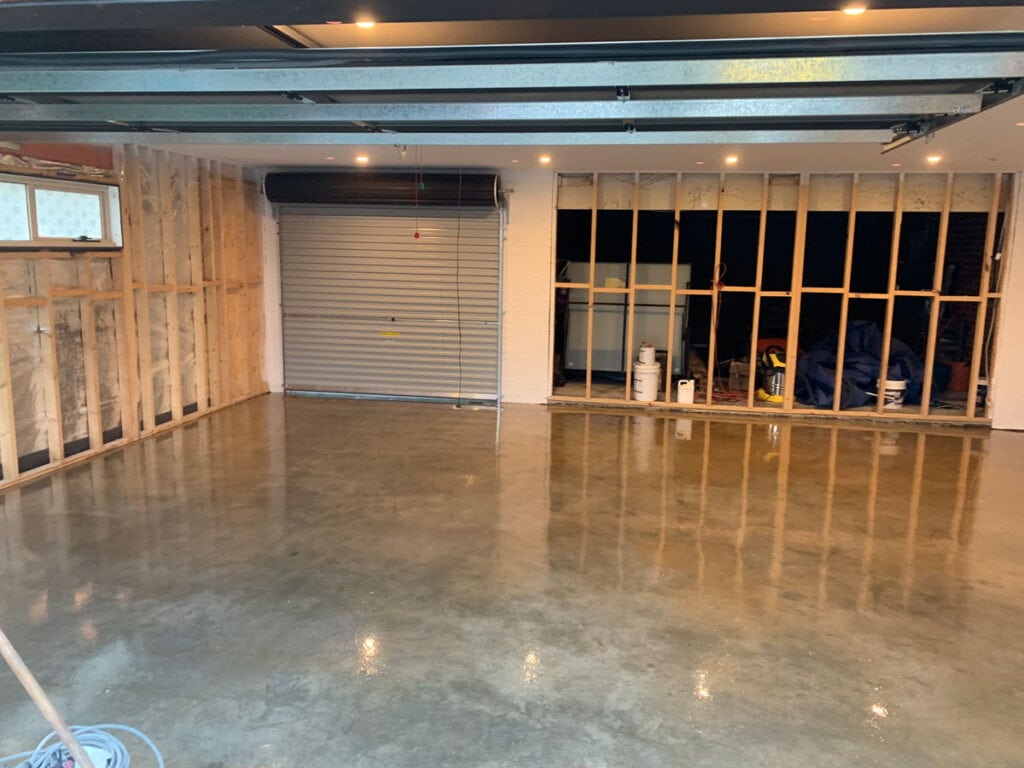
Cost. Although epoxy flooring is often more affordable than tiled flooring, this might vary depending on the quality and finish of the two flooring options being compared. The cost of installing epoxy might range anywhere from $30 to $100 per square meter. While the budget range for vinyl tiles is comparable, the typical cost of ceramic tiles is significantly more and can range anywhere from $90-$150 per square meter.
Do epoxy floors scratch easily?
Large Impacts Epoxy floors are able to withstand a lot of foot activity, a lot of weight, and even heavy impacts. Epoxy flooring can withstand severe impact and are difficult to scratch, dent, or otherwise damage. This is beneficial whether your workers are dragging equipment or dropping items.
Can I use bleach on epoxy floors?
To what extent can bleach damage epoxy floor coatings? When it comes to cleaning your epoxy floor, we strongly recommend that you do not use any strong chemicals like ammonium or bleach. Instead, the damaged region should be scrubbed gently with the ammonium and warm water mix that was mentioned before.
Is epoxy slippery in winter?
Wet floors can be a problem on a variety of surfaces, not only garage floors! The melting of snow and ice can result in the formation of puddles. Floor coatings made of epoxy provide traction and are simple to clean and dry after use. In addition to that, they demand nothing in the way of upkeep.
Does epoxy floor increase home value?
Epoxy garage floors are the most efficient and expensive way to raise the value of your property. A house price can increase by as much as $8 per square foot when the garage is finished with epoxy flooring. That is a significant amount of money when one considers that installing an adhesive floor is a pretty speedy and relatively inexpensive improvement.
How much does it cost to epoxy a 2 car garage floor?
The cost of installing an epoxy garage floor ranges from $2.50 to $9 per square foot. The typical cost of epoxy flooring is $6.55 per square foot, which is equivalent to approximately $3,050 for a two-car garage. This price takes into account the acid etching of the concrete, as well as the application of two coats of substance and decorative flakes.
What is the cost of an epoxy floor in Melbourne?
In Melbourne, the pricing range is anywhere from $30 to $70 per square meter. But keep in mind that this is just a preliminary estimate, and the actual dynamic range will differ based on the specifics of your project. The following table will provide you with an estimate of the cost of your flooring installation based on the square footage of the area you want to cover as well as the design you select. Even though it is only a basic suggestion, it should be able to give you an idea of the prices that might be offered to you in Melbourne. Again, this is only a rough indicator.
In the event that no additional work is required, you could expect to pay between $1,000 and $1,500 for a conventional modest room. However, keep in mind that these costs only reveal part of the picture. It is highly recommended that the existing state of the floor be evaluated by a trained specialist. In the event that concrete preparatory services are required, the following costs can easily be increased by a factor of two. Concrete polishing and repair are typically two distinct processes.
What is the cost of maintenance and repair?
One of the most significant advantages of this kind of flooring is that it requires very little to almost no repair or upkeep. The construction of these flooring makes them capable of withstanding significant amounts of foot activity and enduring for a very long time. These surfaces do not have pores and are impervious to heat, cold, and the majority of chemicals. Simply wipe them down with a gentle cloth now and again to keep them looking their best. Acetone has the ability to eliminate any visible marks. The costs of upkeep are very close to becoming negligible.
In consideration of repair, this typically just entails applying one more layer of epoxy. Due to the fact that the majority of flooring already comes with two coats, this can be done at a lower cost. However, it should not be necessary for you to apply this additional layer in the near future. Because of their durability, you will not need to worry about the expense of repairing or replacing them for the next thirty years.
How can I reduce the cost?
You have a lot of different choices available to you that can help you cut costs. Just a few of them are as follows:
- Find a service provider with years of expertise who can accomplish the greatest work at the lowest possible cost.
- Choose one of the conventional alternatives rather than going with fancy flooring.
- Spread the flooring out over a bigger surface area so that you can pay the lowest possible price per square meter.
- You should start by having the concrete prepped, or you should locate an economical firm to do this in preparation.
- Conduct research on both direct and indirect expenditures in order to avoid going over budget.
Keep in mind that lowering costs is not just the same as lowering financial outlays. For instance, if you want to avoid fast having to replace the flooring in your home, it's usually best to go for higher-quality flooring that can endure for thirty years. Products that have a life expectancy of this magnitude typically more than pay for themselves over time. You will also spend less on repairs and maintenance.
Think about the differences between flooring made of wood and those made of epoxy. The majority of timber varieties require periodic care and should be replaced every 5–15 years. If you choose a realistic strategy, you will get more bang for your buck over the course of the long term.
What are the different types of epoxy?
Different kinds are helpful in a variety of contexts for a variety of reasons.
- Self-leveling: These are intended to be applied over cracked or broken concrete floors in order to create a leveled texture and a polished appearance. They are also intended to be installed over uneven concrete surfaces.
- Anti-static: These are made to withstand static electricity by adding a substance to the epoxy, which gives them their anti-static properties.
- Quartz-filled: These items have a blend of high-grade resin polymeric material and quartz grains that have been tinted for a more elegant appearance.
- Epoxy mortar is the most durable variety of epoxy and is made up of 100 percent solid epoxies in addition to quartz or graded sand.
- Epoxy flake floors are designer adhesive floors that come at a premium price due to the addition of flake materials to the epoxy resin in order to give the floor a more artistic appearance. These are available in an unfathomably wide range of hues and surface textures.
There is not a significant cost difference between the various types of epoxy that were discussed above, with the exception of epoxy flake flooring. Take note, however, that the coating composed of epoxy is distinct from the others. In most cases, the coating is sold as a sealer that is applied over concrete, but the flooring is intended to function as a new floor. The distinction is difficult to discern and is rarely acknowledged. The thickness of the coating is less than 2 millimeters, whereas the thickness of the flooring is greater than 2 millimeters.
Are our epoxy floors worth it?
The concrete subfloor beneath epoxy flooring is shielded from damage caused by moisture, stains, grease, and splits by the epoxy coating. Because there would be no need to clean the grout or the carpet, this will ultimately result in a significant reduction in the expenditures associated with cleaning and upkeep. In addition to this, the cost is fairly reasonable taking into account the extent of coverage that is provided for the time period purchased.
Epoxy flooring can be broken down into three distinct categories, each of which will have an effect on the price:
100% Solid
Due to the fact that they are composed entirely of epoxy, these are the most expensive. In most cases, this is utilized by professionals in the context of business applications. This ranges in price from $45 to $150 a gallon on average.
Water-Based
Epoxy paints that are water-based are far simpler to apply and diffuse, despite the fact that they are thinner. However, the cost per gallon ranges from $30 to $50 for this type of paint.
Solvent-Based
These paints have a greater viscosity than water-based epoxy, but their application is more difficult. They are more substantial and have the ability to cover faults on concrete floors; nevertheless, the specialists who apply them will need to have respirators on at all times. This ranges in price from $45 to $150 a gallon on average.
What to Expect?
When you select an installer to put your epoxy flooring, you should check for certain things and anticipate certain things from them. Keep in mind that if you shop and find bids that are significantly lower than the industry standard, the installers may be skimping on quality. Having said that, this is not always the case; therefore, you should have a conversation with your installation before they begin working so that you can be certain that they are aware of what they are doing.
Check for Moisture
Before beginning, they will be required to determine the level of moisture in the concrete. If there is any moisture present, epoxy can't be applied to the surface.
Multiple Coats
Epoxy needs to be applied in anything from one to seven coats for the best results.
In light of this, the coats are utilized to either patch or level the surface that lies beneath them, according to the quality of the concrete. In most cases, there will be a base coat, followed by one or two resin coats,
Time
The length of time necessary to complete it is the most important factor that should be anticipated.
Even though it's a pretty straightforward procedure, your installer will be required to wait for the epoxy to completely dry in between each layer that they apply. As a consequence of this, the construction of epoxy flooring might take anywhere from three to five days on average.
A Long Term Solution for Quality Flooring
There is a significant price range for epoxy flooring, and it is mostly determined by the total square footage of the space in which you want it put, the type of epoxy that will be used, as well as the labor and material expenses. You also need to take into consideration the amount of time it will take to complete the task. Epoxy flooring, on the other hand, if it is done correctly, can last for years, and this is true even in interior areas that see a lot of foot activity. Even better, because it is resistant to water and oil, epoxy flooring requires very little upkeep and is easy to clean up after spills.
Epoxy flooring cost per square foot in Melbourne:
The price of installing an epoxy floor in Melbourne can range anywhere from $4.40 to $7.30 per square foot. In this step, the floor will be prepared, and then the coating will be applied. Your project to coat the floor will have a different cost depending on the material that is utilized. For instance, if you are interested in applying a concrete stain or concrete paint, the cost will be lower than if you were to use an epoxy floor coating, which is a more expensive option.
Cost of epoxy coating for garage floors in Melbourne:
- The cost of installing an epoxy garage floor in Melbourne can range anywhere from $1,100 to $7,200. This price is determined by the size of your garage as well as the state of the concrete floor.
- The cost of covering your garage floor will differ depending on the size of your garage.
- The cost of an epoxy basement floor ranges from $1,100 to $1,800 for a one-car garage that is 250 square feet.
- The cost of an epoxy garage floor can range anywhere from $2,200 to $3,600 for a 500-square-foot two-car garage.
- The cost of an epoxy garage floor ranges from $3,300 to $5,400 for a three-car garage that is 750 square feet.
- The cost of an epoxy garage floor ranges from $4,400 to $7,200 for a 1,000-square-foot garage that can fit four cars.
Cost of epoxy flooring for basements in Melbourne:
- In Melbourne, the cost of installing an epoxy basement floor can range anywhere from $2200 to $11100. This price is determined by the size of your basement, the type of coating product you select, and the current condition of your basement level. Prices for epoxy basement floor paint are often calculated on a per-square-foot basis, as this type of paint is used as a sealer for basement floors.
- The cost of covering the floor of your basement will vary depending on the size of your basement.
- The cost of an epoxy basement floor is $2,950 per 500 square feet (the price range is $2,200 to $3,700).
- The cost of an epoxy basement floor is $5,900 per 1,000 square feet (the price range is $4,400 to $7,400).
- The cost of installing an epoxy basement floor is $8,850 per 1,000 square feet (the price range is $6,600 to $11,100).
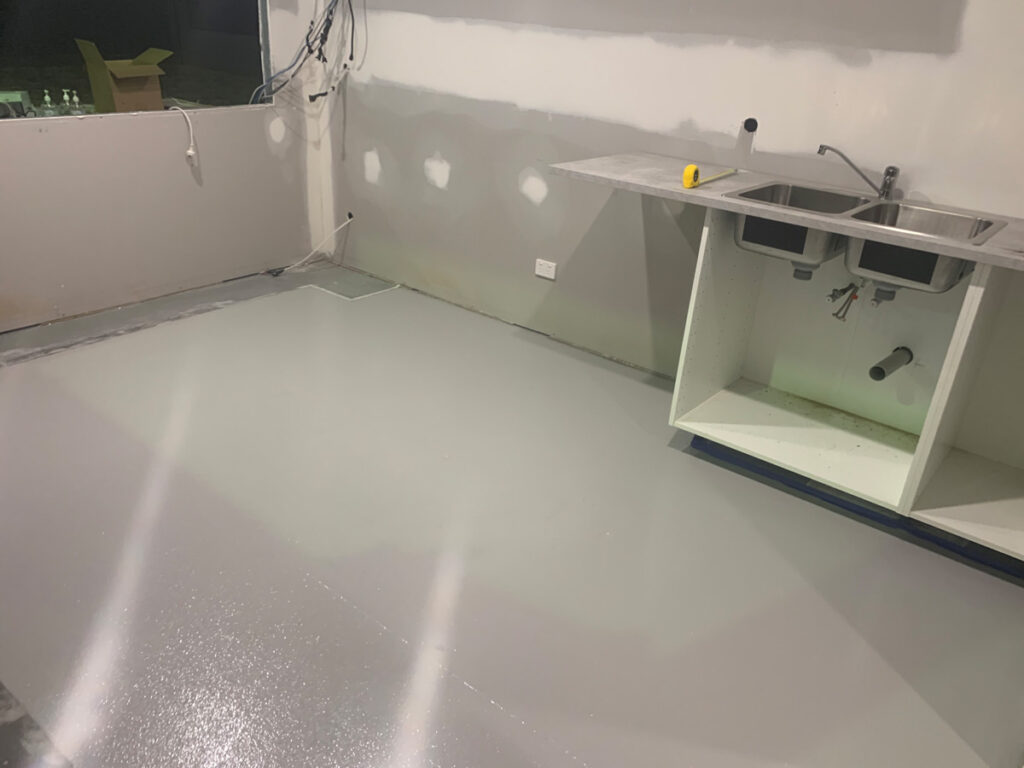
Factors that Influence Epoxy Floor Cost in Melbourne
When a contractor comes to your home to present you with an estimate of the cost of your job, they will take into consideration a number of different elements, each of which has the potential to either increase or lower that cost. For instance, the cost of your epoxy project will vary depending on the type of coating you decide to use, the amount of the area that needs to be coated, and the state of the concrete.
It's possible that your pricing will be higher when:
- You either have a sizable ground floor, garage, or lower level.
- Your floor is not level and has to be fixed as soon as possible.
- The condition of the concrete is really terrible (cracked, broken).
- The surface should be washed with a power washer or cleaned under pressure.
- You come to the conclusion that adding a topcoat will provide further protection.
- To bring the project to a successful conclusion, either the garage or the basement needs to be relocated.
- You can use either a solvent-based or a solid epoxy.
Your prices may be lower when:
- You are limited in space due to your small floor, garage, or basement.
- The concrete ground is of very high quality (no cracks or broken areas).
- The floor is tidy and takes little in the way of preparation.
- There is no requirement for leveling up.
- Nothing in this room needs to be relocated because it is completely vacant.
- You utilize an epoxy that is water-based.
Conclusion
In general terms, the pricing range is anywhere between $30 and $70 per square meter. This cost does not come into effect until after the ground has already been polished.
Depending on the state that the floor is in currently, the expenditures associated with preparation could be rather high.
Epoxy flooring, on the other hand, if it is done correctly, can last for years, and this is true even in interior areas that see a lot of foot activity. Even better, due to its resistance to water and oil, laminate flooring requires very little upkeep and is easy to clean up after spills.
Typically, epoxy flooring lasts 2 to 3 years in heavy traffic. Commercial properties—like garages, restaurants, or factory spaces—with lots of daily foot traffic can expect this experience. However, with proper care and maintenance, your epoxy flooring may last much longer.
- Strong Application Fumes. During the epoxy application process, wet epoxy gives off an unpleasant smell. ...
- Long Curing Time. ...
- Slippery When Wet. ...
- Economical Flooring Choice. ...
- Resistant to Damage. ...
- Weather-withstanding. ...
- Aesthetically Pleasing. ...
- Protects and Decreases Wear & Tear.
Extremely safe – Epoxy is a very safe coating for your hard floors. It's slip resistant, shock resistant, and less abrasive than concrete and other types of industrial flooring. ... It can also withstand heat of up to 200 degrees, making it a better choice than most other types of flooring when it comes to fire resistance.
